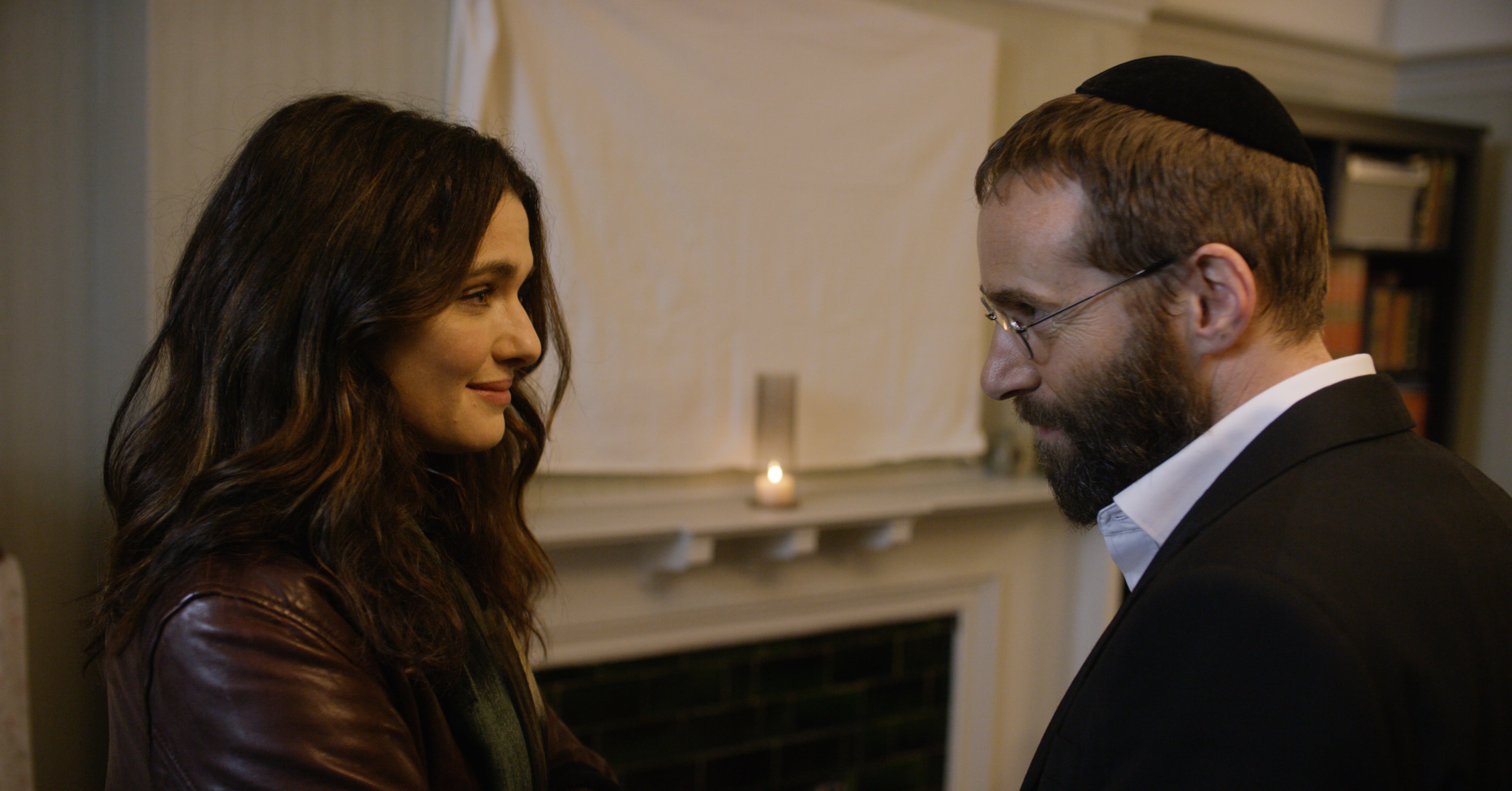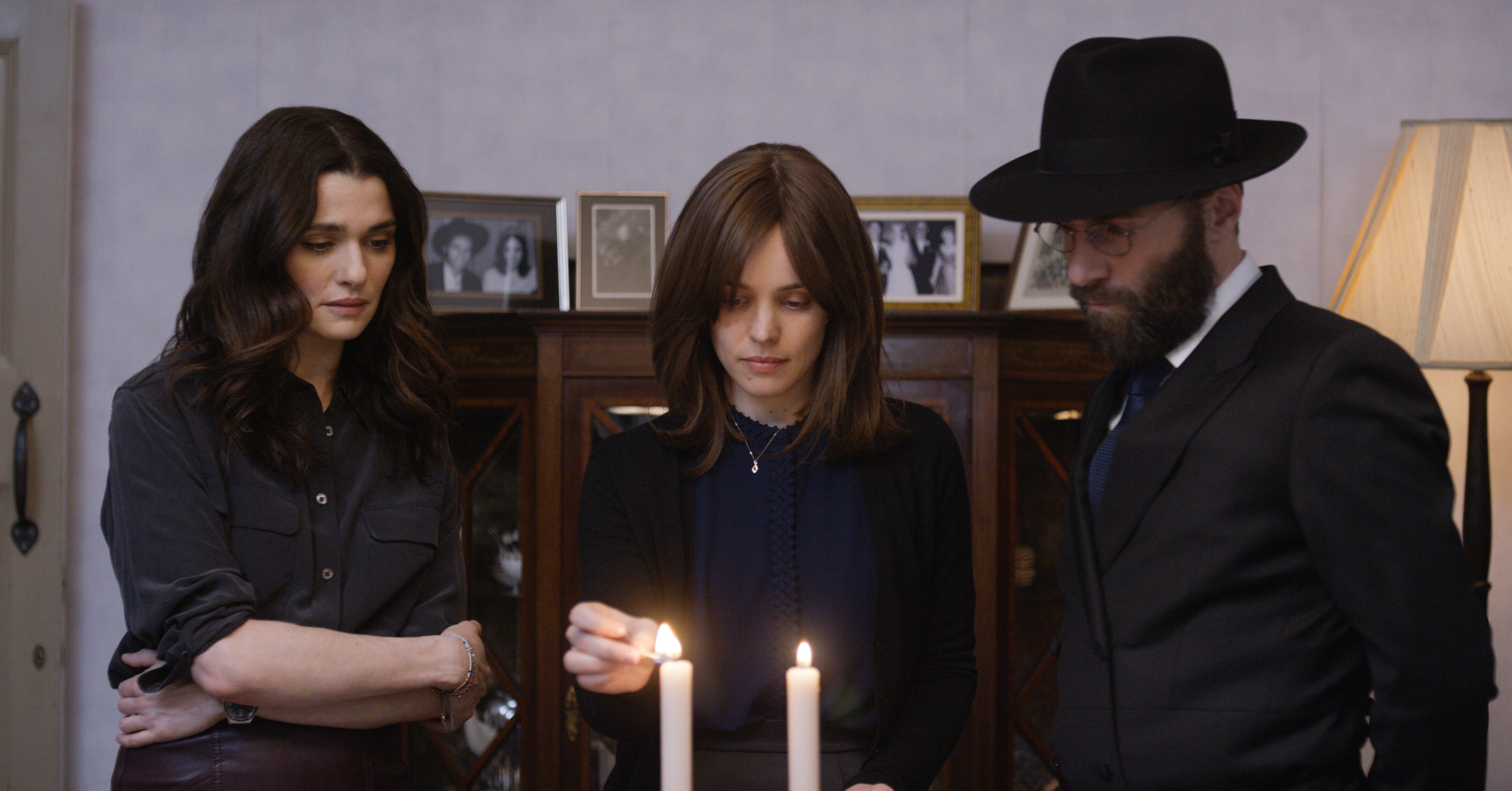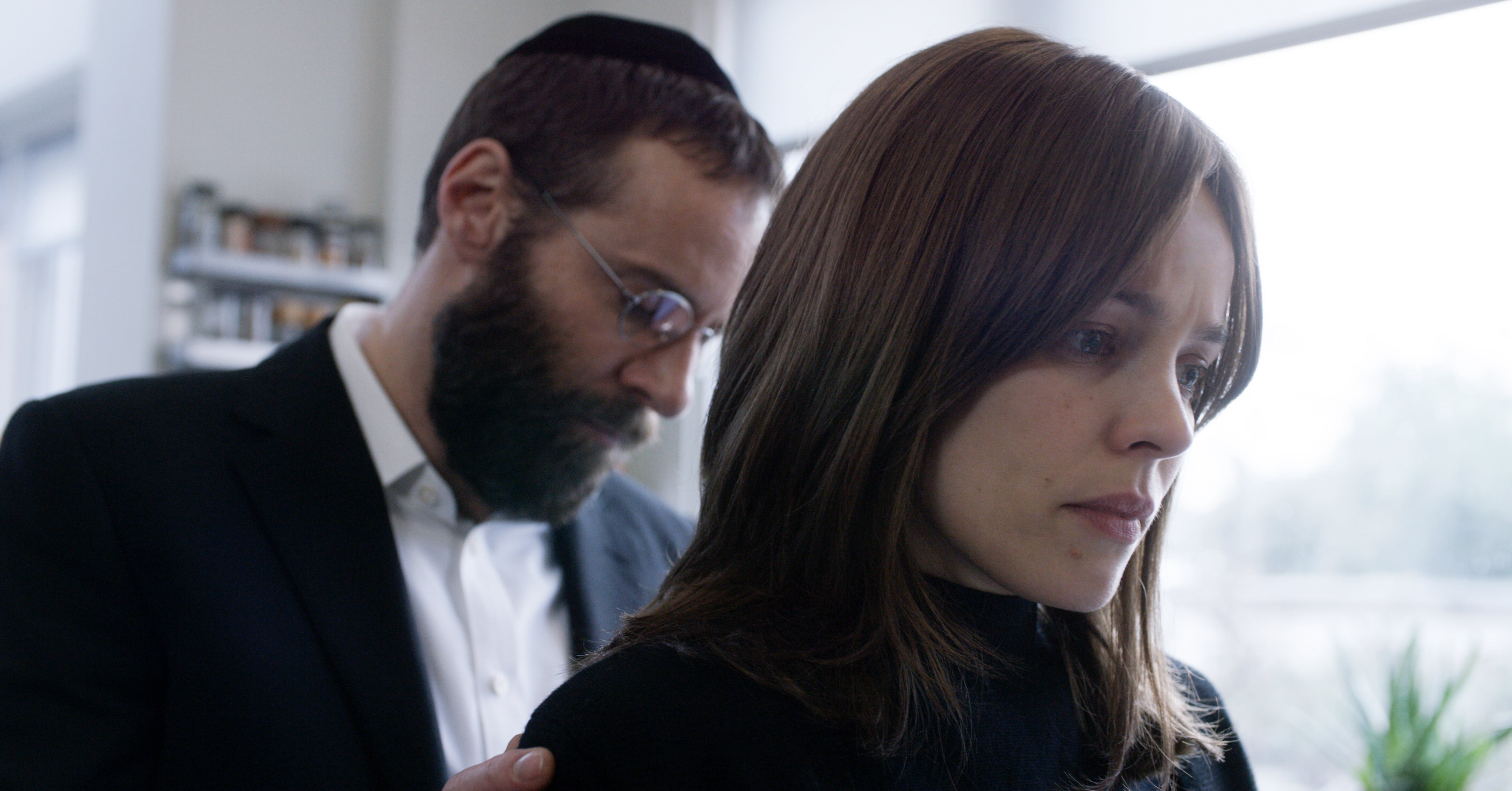By Layla Savage, First Year, English
Sebastián Lelio’s masterful Disobedience is a tender and powerful film following his Oscar-winning A Fantastic Woman, with similar themes exploring love and grief. Adapted by Lelio and Rebecca Lenkiewicz from Naomi Alderman’s 2006 novel, this is a beautiful, emotionally nuanced film about passion, faith and freedom.
Rachel Weisz plays Ronit Krushka, an English photographer living a bohemian artist’s life in New York City, who returns to the North London Orthodox Jewish community she grew up in when her father, a highly respected Rabbi, dies.
Her return is unexpected as she was shunned from the community when she was younger for her rebellious ways and hasn’t been back since, thus she is treated and approached by this very insular community with a mixture of wariness and distance.
Youtube / Bleecker Street
At the centre of Disobedience is the relationship between Ronit (Weisz), Esti (Rachel McAdams) and Dovid (Alessandro Nivola) - all three close childhood friends that had grown up together. Dovid had been taken under Ronit’s late father’s wing as a kind of adopted son and mentee, and is now married to Esti, which comes as much of a surprise to Ronit, as the true extent of their relationship is revealed.
This marriage can only be described as sterile and founded by duty and expectation rather than love, particularly in contrast to the passion that grips and guides the ensuing affair between Ronit and Esti.
Throughout the film, Lelio deftly moves between moments of expressing theological and philosophical ideas about love, freedom and obedience to the way in which these very large abstract qualities are played out in human lives and relationships.
Watershed / Disobedience
Indeed, the most important and powerful moments in Disobedience seem to live in the gaps: the things frequently left unsaid but wanting to be shouted; the striking glances and looks held between Ronit and Esti; the complete void of physical touch and affection for Ronit when she is grieving.
Lelio guides the film with a light hand, these gaps - and others in the history of the events of the film - are left for the audience to fill in, enabling the viewer to be absorbed into this world and make connections for themselves.
Much has been said about Rachel Weisz’s extraordinary performance in the film and the affair between Ronit and Esti, but Disobedience is really a triangular love story and it is the strength of the central three characters that holds the film, with powerful dynamics and tension between them.

Watershed / Disobedience
Nivola plays Dovid, the Rabbi and natural successor, with a sense of strength and muscularity of faith and order, but as the film progresses a deep vulnerability is shown too, making this by no means a two-dimensional portrayal of the tyranny of religious patriarchy.
Similarly, Rachel McAdams’ portrayal of Esti is just as layered and complex. While initially appearing to be the typical obedient wife and homemaker, much quieter and more reserved than both Dovid and Ronit, her character is shown to have an enormous depth and emotional reserve. In the midst of the erotic and passionate love she holds for Ronit, there is an equally significant power in her devotion to her faith and the pride that she takes in her work as a school teacher.
Rachel Weisz is the low-key box office indie star of 2018. First, for half a year, #Disobedience held the record for the best opening average for a female-led film in 2018, and this weekend, her #TheFavourite claimed the title. Congrats, Weisz. pic.twitter.com/unzMeVUuu1
— ActressBoxOffice (@ActressBox) November 26, 2018
Weisz’s performance anchors the film from the start with varied scenes of her immediate reaction to her father’s passing: ice skating alone, drinking in bars, casual sex, tearing her clothes in tradition. There is an isolation and loneliness in these moments that does not go away throughout the film, apart from the moments of closeness or intimacy with Etsi.
Despite the number of people also mourning her father, she is entirely isolated and ‘other’-ed by the community she had grown up in, often even erased. While Esti very much shows the pain of repressing part of your identity to conform, Weisz’s portrayal of Ronit brings forth the burden of having to leave and the adjustment necessary with return, reigniting feelings and emotions that have been left to dwindle for years.
Watershed / Disobedience
Disobedience is both underplayed and subtle, yet fuelled by a burning desire and passion just beneath the surface. It is a masterful study in love and loss, the history and baggage that we carry with us, and the tension between what life we are born in to, and what kind of life we desire to forge for ourselves.
Disobedience is showing at Watershed until Thursday December 6.
Featured Image: Watershed / Disobedience
Have you ever been in such a tense love triangle as in Disobedience?
Facebook // Epigram Film & TV // Twitter











